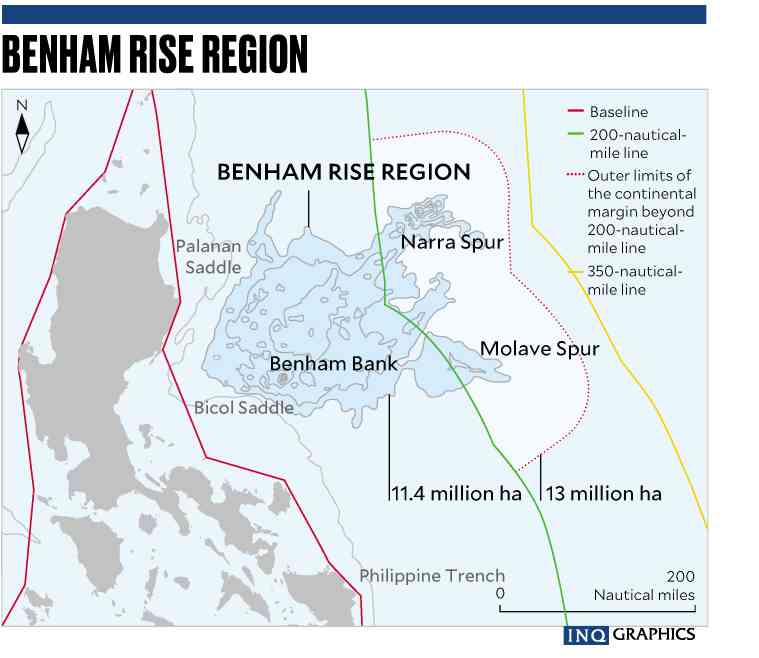
In a statement, Zarate said the Joint Marine Seismic Undertaking (JSMU) in 2005 gave Beijing access to valuable data on natural gas deposits and supposedly “jeopardized” Manila’s claim to Recto (Reed) Bank, part of the hotly-contested Spratly Islands in the South China Sea.
He claimed the country lost “control and supervision over the exploration of our petroleum and other mineral oils” when the Arroyo administration entered into the deal with China National Offshore Oil Corp. and the Vietnam Oil and Gas Corp.
“With the JMSU, the Arroyo administration effectively sold out the country to the Chinese, who were granted an unbridled access in our maritime territory, especially the gathering of valuable data on natural gas deposits in our territories like the Recto Bank,” Zarate said.
“Our bad experience with the JMSU, where our country was placed in a very disadvantageous position… is bound to happen again in the case of Benham Rise,” he added.
Zarate said future joint exploration with China “must protect the interest of the Filipino people and should contribute to the country’s economic development [and] must also recognize our territorial integrity and sovereignty.”
Magdalo Rep. Gary Alejano also likened to JMSU the Duterte administration’s move to allow the Institute of Oceanology Chinese Academy of Sciences to do research at Benham Rise, an underwater plateau east of Luzon which the United Nations in 2012 declared part of the country’s extended continental shelf.
In a separate statement, Alejano said the Duterte administration had seemingly repeated the Arroyo government’s supposed moves favoring China in exchange for sweetheart infrastructure deals.
“Given history of China’s actions, are we not supposed to be concerned and suspicious? Unless the Duterte administration has already turned a blind eye to China doing research and surveys in our waters in exchange of infrastructure projects,” he said.
“What is happening now seems to be a repeat of JMSU entered into by the Arroyo administration in exchange of the anomalous NBN-ZTE and Manila-Clark Northrail deals,” he added.
NBN-ZTE referred to a now-scuttled $329-million national broadband network deal with China’s ZTE Corp., while the Northrail is a stalled railway project.
JMSU is subject to a petition by Bayan Muna which has been pending before the Supreme Court since May 2008.
The nine-year old petition argued JMSU had the “effect of selling to China and Vietnam the country’s potential petroleum resource within the agreement area.”
Such joint efforts also supposedly violate Article 12, Section 2 of the 1987 Constitution, which mandates that exploration, development and utilization of natural resources be “under the full control and supervision of the State.”
On Friday, Foreign Affairs Secretary Alan Peter Cayetano defended the Duterte administration’s decision and said the law permits such research activities “for as long as there is a Filipino on board, (a) Filipino scientist, and for as long as all findings, data, research are shared.”
READ: Cayetano defends granting China research access to Benham Rise
He also claimed “the same rule applies for all the countries,” although he said he would have to “check” first the claim that DFA turned down a similar request by a French nonprofit organization, Tara Expeditions Foundation.
Alejano, who made the claim about Tara’s rejected research request, said the country should be more cautious about China because of its past aggressive actions. Even the Chinese oceanographic institute, he claimed, had allegedly published scientific articles concerning Philippine waters without the government’s knowledge or permission.
“Who has history of grabbing our territories, laying claims to 80 percent of our EEZ, harassing our fishermen and blocking our patrol vessels? It is the Chinese,” he said.
“China’s application merits concern because China has been surveying our waters for so many years without our consent. They have shown that they do not respect our rights as a sovereign state,” he added. /atm

